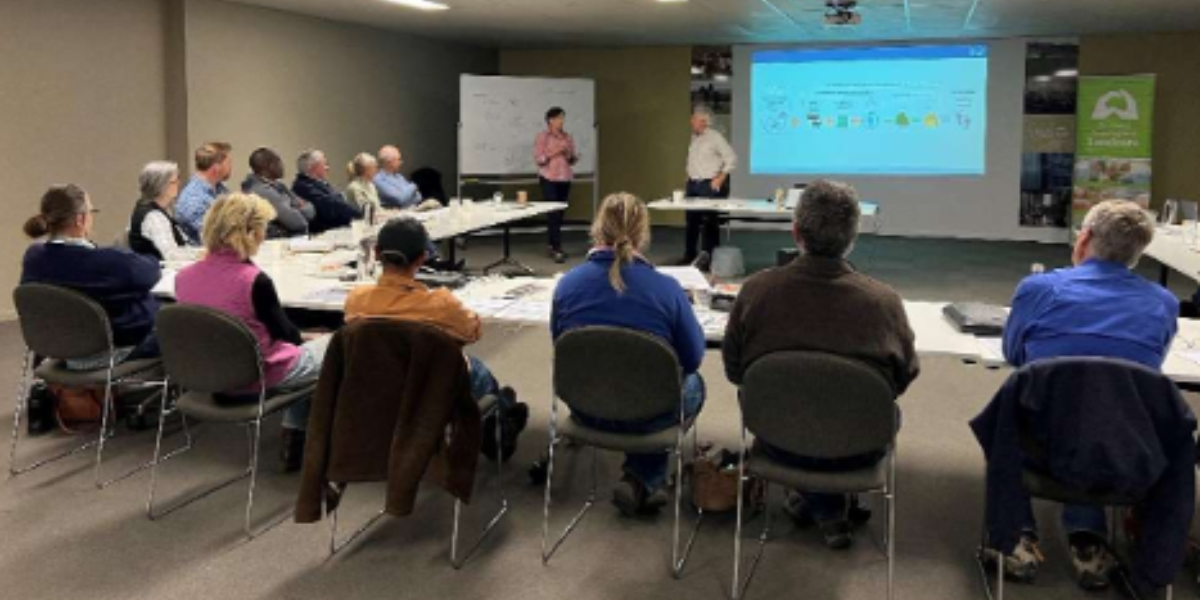UNE together with Landcare groups, Southern New England Landcare and GLENRAC Inc., delivered a
series of Calculating Carbon workshops, as part of the Drought Resilient Pasture Landscapes (DRPL) project, that educated landholders on sustainable farming and the potential benefits it can have on productivity, profits and emissions.
“Practices that lower greenhouse gas emissions form part of good farm management and have benefits for both sustainability and productivity,” says project lead Professor Lewis Kahn.
Hosted by Dr Tom Davison, a leading expert in livestock production, methane emissions and greenhouse gas emissions reduction research, the workshops taught participants from the Walcha, Armidale and Glen Innes regions how to calculate greenhouse gas emissions from their farm and estimate their annual output.
“The topic of carbon is complex, and farmers need to understand not only the drivers of change but the various practices to reduce emissions and the international and local regulations, financial markets, and supply chain pressures,” says Professor Kahn.
“These workshops aimed to better equip farmers with improved knowledge to make informed decisions about participating in the carbon economy.”
Participants were also provided with practical strategies to implement on farm to reduce carbon.
“These strategies include better efficiency of production through higher rates of reproduction and growth rates in beef cattle herds, using feed additives such as nitrate, anti-methane products, oils and tannins, breeding for lower methane emissions, using legumes and novel forages, environmental plantings, and storing soil carbon,” says Professor Kahn.
“Growers gave a very positive review of the workshops, identifying how much they learned and the value of having calculated their annual farm greenhouse gas emissions.”
Since December 2022, the DRPL project has been working with farmers across the Northern Tablelands through an on-farm coaching program to better equip them to navigate climate variability and drought conditions using a range of indicators for productivity success, including pasture herbage mass, ground cover, and soil organic matter, that also provide public benefit through reduced weeds, erosion and rainfall runoff.
With the project ending in June, key information will be transferred into a free online resource, that will be publicly available from July.
In the meantime, watch a case study on how the project has helped local producers, Ian and Julie Firth, strengthen their grazing enterprise here.
For more information contact Southern New England Landcare on 02 6772 9123 or email
mail@snelandcare.org.au.
Like what you’re reading? Support The New England Times by making a small donation today and help us keep delivering local news paywall-free. Donate now.

